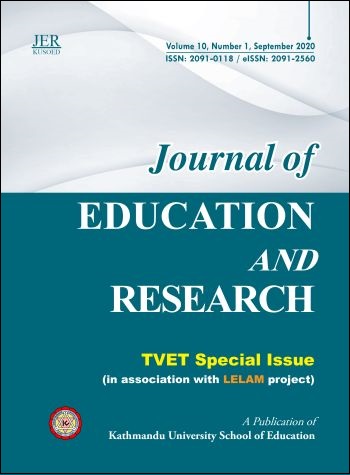Governance and Power-Sharing in TVET in Nepal: Sharing of Practical Experiences
Keywords:
multi-level governance, federalisation, training and development, public-private partnerships, Governance and power-sharing in TVETAbstract
Addressing the overall theme of Governance and Power-Sharing in TVET in Nepal, the paper starts by defining the key concepts. Governance surely means involvement of Government, but Government can be extended by involving civil-society actors, like the private sector, which can also play an important role in executing some roles and responsibilities. When such non-government sectors are involved in the planning, execution and financing of TVET, this is where we speak of power-sharing. To be effective, power over TEVT must be executed at many levels: at a macro level (federal level), at a meso level (provincial level), and at a micro or local level. One powerful way of ensuring this power-sharing between government and non-government in TVET is through public-private partnerships (PPP). It is argued that employers- for many good reasons- have so far not been playing their optimal role in TVET. This should change and it is argued how PPP can ensure this change. The outcome would be the bringing about of more market-relevant and demand-driven qualifications and skills that the employers say they need to staff their businesses and industries. With the point of departure in mind that GoN is presently not at the verge of reforming its overall TVET system, this is the time now where important lessons can be gathered and learned from, which can give a direction to new policy initiatives.




